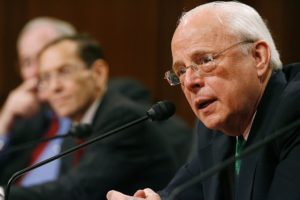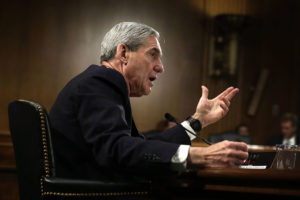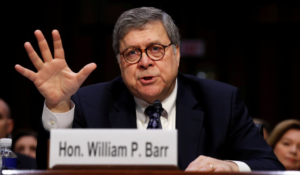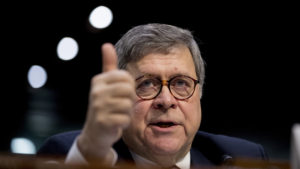John Dean sat before the U.S. House Judiciary Committee today to offer the panel some historical context. He wasn’t there as a “fact witness” with specific knowledge of the matters involving Donald Trump’s conduct during the most recent presidential campaign.
However, he was there to provide some historical perspective gleaned from his role as White House counsel during the Watergate scandal of 1973-74.
I agree that Dean was a dubious “expert,” given his own culpability in the crimes committed during President Nixon’s administration.
However, we might have gotten a preview of what we could expect if the House Judiciary panel decides to launch a full-blown impeaching proceeding against Donald Trump.
What might that include? It might — indeed, it likely will — include Republicans on the panel who will seek to denigrate the credibility of every Trump critic who seeks to make the case for impeaching the president.
We heard it today from GOP members who sought to ridicule Dean’s appearance. By “ridicule,” I mean to suggest that they inferred that since Dean wasn’t there to discuss the “facts” of the Trump matter, they would ask him questions about subjects that had nothing to do with the issues at hand. They sought to suggest that as a convicted felon who lost his law license he had no credibility on anything.
Did we hear anyone of the GOP members defending Donald Trump’s character? Did they speak to the president’s honesty, his integrity, his courage, his commitment to public service?
Umm. I didn’t hear it. Did you?
What I heard was an effort to denigrate, disparage and disrespect a witness who took an oath to tell those members of Congress the truth.
I believe it’s good to keep this conduct in mind if the House Judiciary Committee decides to launch impeachment proceedings yet again.







